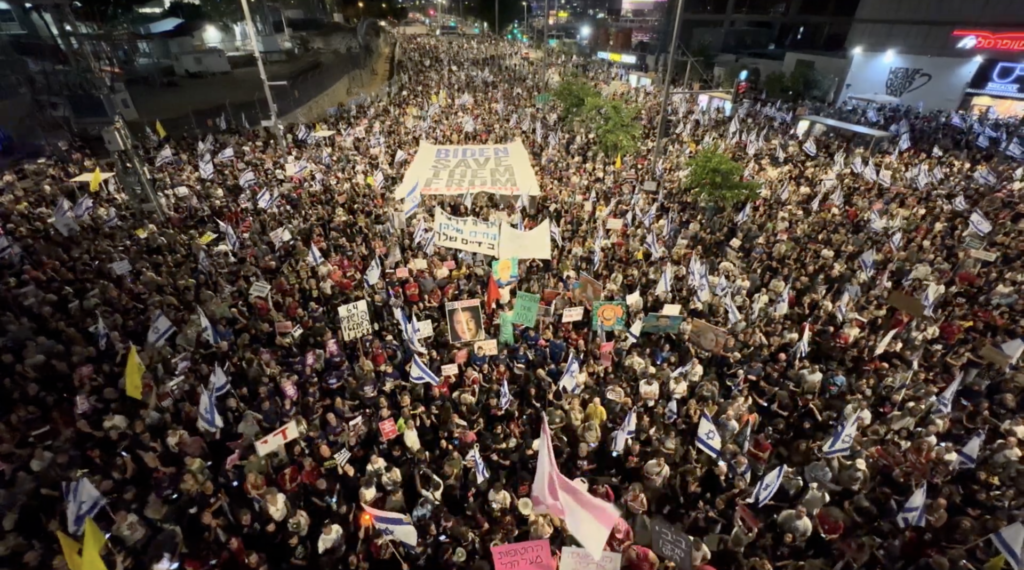From nearly the first day of this war, we were promised that reservists returning from the frontlines would bring change. Just as the generation of the Yom Kippur War returned from battle to topple Golda Meir’s government, those returning from Gaza and Lebanon would tear down the walls built between Israel’s two political camps. Having fought side-by-side in tunnels and alleys, they wouldn’t allow the “Bibi: Yes or No” divide to shape the nation anymore. They would send Netanyahu and his failed generation packing and bring about a unity government.
However, recent focus groups conducted by a political organization seeking to occupy precisely this middle ground suggest the opposite: the wall between Israel’s camps isn’t just intact; it may be growing taller. For instance, a group of right-wing reservists expressed anger toward Netanyahu over security and conscription policies but still displayed deep suspicion toward anything perceived as “leftist.” They might leave Likud—but only for another right-wing party.
Religious spouses of reservists voiced similar sentiments, indicating that the divide between supporters of territorial integrity and proponents of compromise outweighs any other consideration—even frustration with ultra-Orthodox communities.
Two additional groups—right-wing reservists and center-left voters—revealed significant polarization. Right-wing reservists grew more hostile toward the Supreme Court and embraced harsher views on Gaza. Conversely, center-left voters distanced themselves further from religious Judaism, expressing intensified disgust toward Netanyahu and contempt for ultra-Orthodox factions. Like coalition voters, opposition supporters are also frustrated with their leadership’s failure either to topple the government or effectively influence it from within.
If these trends hold, Israel faces a grim election campaign marked by internal cannibalism, with little voter movement between sides. Leaders like Benny Gantz, Gadi Eisenkot, Naftali Bennett, and others counting on right-leaning voters may find themselves forced primarily to compete for center-left support.
This polarization could explain a consistent pattern observed in recent months: Gantz’s weakening position and the rise of Yair Golan. While Gantz speaks of unity and dialogue, Golan doesn’t rule out civil disobedience, with his party’s representatives actively fueling public protests. On the other hand, for over half a year, polls have consistently favored the party temporarily dubbed “Bennett 2026,” whose strategy relies on support from both camps simultaneously. Whether Bennett is heading toward political self-destruction or a second term hinges on a key question: is the current mood temporary, or will Israelis continue waking up every day as though it’s still October 6?
The above is an excerpt from my Shabbat column in Yedioth Ahronoth.







